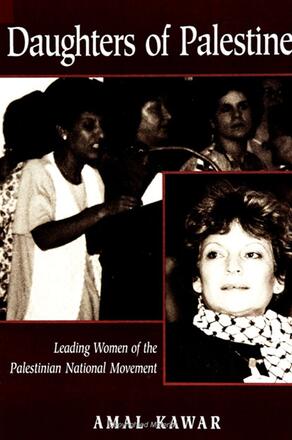
Daughters of Palestine
Leading Women of the Palestinian National Movement
Alternative formats available from:
Based on interviews with 35 women leaders, this is the first study of women's involvement in the Palestinian National Movement from the revolution in the mid-1960s to the Palestinian-Israeli peace process in the 1990s.
Description
Based on interviews of the PLO's top women leaders in the Palestinian diaspora and the West Bank and Gaza Strip, Daughters of Palestine provides the first examination of the full history of women's involvement in the Palestinian National Movement from the revolution in the mid-1960s to the Palestinian-Israeli peace process in the early 1990s. Going beyond media imagery, Amal Kawar reviews the women's social and political backgrounds to explain how they overcame the traditional gender roles pervasive in Arab societies and became involved in politics. She then focuses on particular periods in the history of the Palestinian movement, as it moved from Jordan to Lebanon, Tunisia, and the Occupied Territories.
Issues covered include women's nationalist activities, their relationship to the male leadership, the impact of crises, and the upsurge of the Islamist movement. A consistent theme of this investigation is how conflicts and crises, inside and outside the Palestinian arena, challenge and frame the success of women's nationalist work. Daughters of Palestine highlights the dilemma of national liberation struggles that both promote and co-opt women's liberation aspirations.
Amal Kawar is Associate Professor of Political Science at Utah State University.
Reviews
"This is a fine and useful book that will appeal to a wide group of readers. Its time has come, with the high visibility of Palestinian women leaders at present, such as Hanan Ashrawi. We learn much about the political leaders, their lives, setting, cultural constraints, and their aims and struggles, but without use of fancy social science terminology, rhetoric, or complex theorizing. This matter-of-fact, humanizing, personalizing tone is particularly useful applied to a group of people who have often been presented in the U. S. media as frightening and cruel terrorists. We are told frankly about the cultural difficulties of the women and the patriarchal nature of the barriers against them. Daughters of Palestine will be most useful for courses on the Middle East, cultures in conflict, cultural and social change, women in politics, women and family, the cross-cultural study of women, and gender and change. "--Mary Elaine Hegland, Santa Clara University